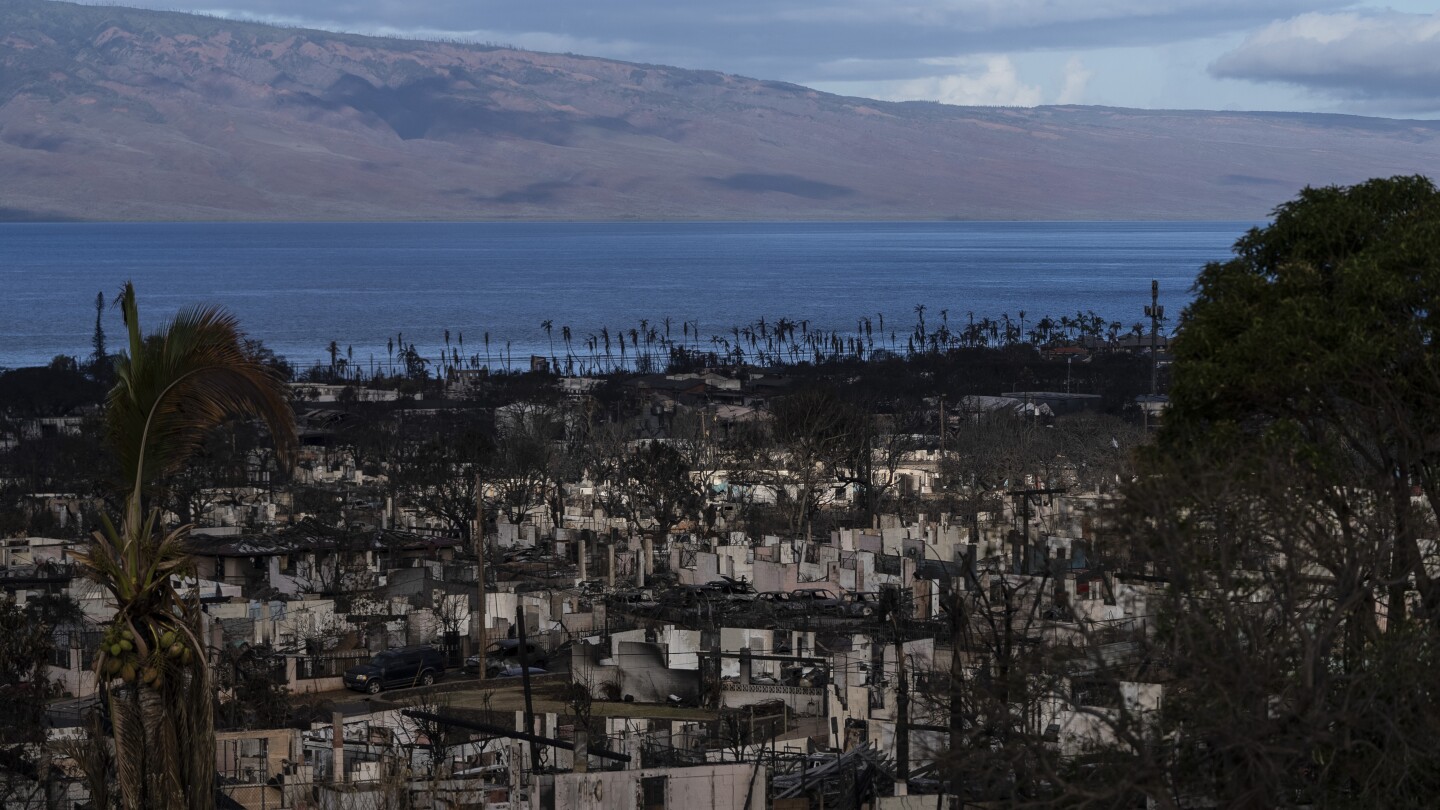Conspiracy theories falsely tie Maui wildfires to ‘smart cities’ and tech conferences

CLAIM: Maui hosted a conference about making the entire island into a “smart city” in January and will host another summit next month about using artificial intelligence to govern the island, proving recent wildfires were deliberately set to transform these ideas into reality.
AP’S ASSESSMENT: False. The Hawaii International Conference on System Sciences in January was not about turning Maui into a “smart island.” It is an annual gathering focused on emerging issues in the information technology sector globally. Next month’s Hawaii Digital Government Summit, similarly, is not specifically focused on using A.I. on Maui, but about how governments across the state can better adapt emerging technologies. It also takes place on another Hawaiian island, not Maui.
THE FACTS: As authorities continue to probe what sparked the wildfires in Maui this month, social media users are suggesting government officials have long been planning to raze the island in order to realize their vision for a so-called “smart” city.
Many are attempting to connect the dots between the deadliest blaze in the country in more than a century to efforts to incorporate digital and renewable energy technologies into everyday life.
The posts draw on existing far-right tropes that global-minded organizations such as the United Nations and the World Economic Forum are plotting to forcibly move people into futuristic “smart cities” or “15-minute” cities where their freedoms will be severely curtailed by advanced technologies.
“What they don’t talk about is in January how they had in Maui a smart city conference to turn Maui into an entire smart island, changing everything to electric, renewables, solar panels and pushing everybody into electric vehicles — 15-minute smart cities,” a man says in one widely shared video.
“So, now what’s also interesting is next month in September, Hawaii is hosting the digital government summit, utilizing AI to govern the island,” the man continues. “It’s almost like they’re resetting something to start rebuilding for this.”
But the posts not only misrepresent the concepts of “smart cities” and “15-minute cities,” but also make false assertions about the conferences themselves.
“Smart cities” generally refer to communities that utilize new technologies to improve operations while “15-minute cities” is an urban design principle that emphasizes building more compact communities where everyday needs can be found within a 15-minute walk. They aren’t designed to restrict people’s movements or freedoms.
The conferences in Hawaii, meanwhile, are broad in scope and not focused solely on smart cities, 15-minute cities, Maui or even the state of Hawaii.
“There is no truth to the horrendous assertion that the fires were deliberately set to raze the historic town of Lāhainā, which was the first Capitol of the Hawaiian Kingdom,” Hawaii Gov. Josh Green’s office wrote in an emailed statement, referring to the Maui community at the epicenter of the destruction.
At the Hawaii International Conference on System Sciences in January, thousands of researchers presented their work on a wide range of information technology issues, not just on smart city-type concepts, explained Tung Bui, an IT professor at the University of Hawaii at Manoa who chairs the conference.
Nearly 1,500 papers were submitted as part of the world’s oldest and largest IT conference of its kind, he said. About a dozen were related to smart cities, and none were focused on Maui.
“The idea of resorting to destructive measures, causing harm to a historic landmark and resulting in numerous fatalities, all in an attempt to transform Maui into a smart island, stretches the boundaries of my imagination,” Bui wrote in an email.
Philip Bertolini, a senior vice president at e.Republic, which is organizing next month’s Hawaii Digital Government Summit, said the gathering isn’t focused exclusively on using AI in the public sector — and the notion of turning Maui into a city run by AI isn’t on the agenda, either.
“We don’t know where all that came from,” he said in a phone interview Tuesday. “Our event is so much more. AI may be a topic there, but it’s all about getting the public sector together so they can engage, share best practices and also bring the private sector in to share and engage in best practices around government technology.”
Indeed the only mention of AI on the official agenda is a talk from technology expert Jack Shaw titled “Digital Transformation for Government: The Future is Now.” The session focuses on “unlocking the power of emerging technologies” — of which AI is one example —- in order to improve government.
But Shaw said Wednesday he wouldn’t be speaking at the conference after all, due to a scheduling conflict. In either case, similar presentations he’s given at other events haven’t touched on Maui. Instead, he highlighted digital innovations in the Eastern European nation of Estonia, as well as Utah’s use of AI in cattle branding, combating unemployment benefit fraud and air quality analysis.
What’s more, the upcoming summit, which has since posted a statement rejecting the false claims on its website, is not even happening on Maui, as some social media posts claim. The annual gathering marks its 13th year in Honolulu, the state capital on the island of Oahu.
Some posts also falsely conflate a program called JumpStartMaui with the two conferences. But the six-year, $30 million joint effort between the Japanese and Hawaiian governments wrapped up in 2017 after building roughly a dozen quick-charge stations for electric vehicles on Maui, among other renewable energy investments.
“There’s so much incorrect in these posts,” Bertolini said. “I don’t even know where to begin.”
___
This is part of AP’s effort to address widely shared misinformation, including work with outside companies and organizations to add factual context to misleading content that is circulating online. Learn more about fact-checking at AP.
This article has been archived for your research. The original version from Associated Press can be found here.


